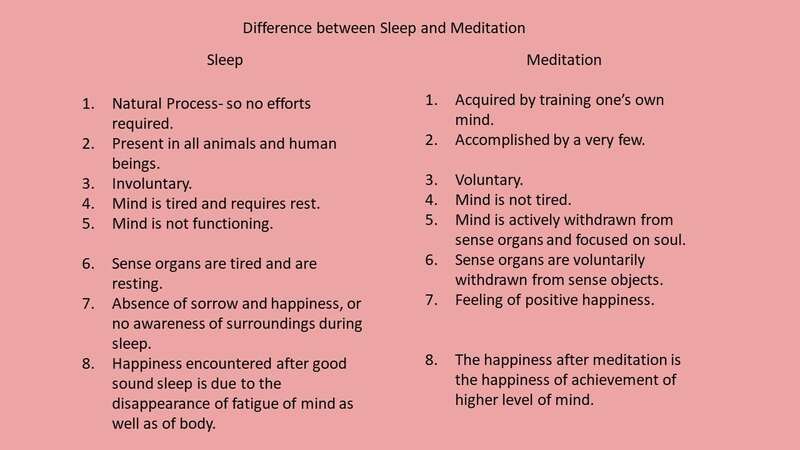Author: Randeep Singh / go to all articles on Yoga Concepts
One should aspire to be wealthy and enjoy all worldly pleasures. However, the means of acquiring money should be fair and, while enjoying the worldly pleasures one should adhere to the path of righteousness.
Even if all the wealth and worldly pleasures are at one’s disposal, one cannot enjoy them unless possessed of a positive mental and physical health,which is the result of a healthy lifestyle.
Charaka defines healthy life as one which is endowed with youth, strength, virility, intellect, and memory as well as all the delightful amenities and wealth. Such a person can enjoy as he wishes. A healthy mind resides in healthy body. Conversely, a person with an ideal mental health alone can have ideal physical health because Charka says, “Not following the dictates of one’s conscience is the root cause of all physical and mental ailments and unhappiness,” Hence one must attempt to improve one’s physical as well as mental health simultaneously.
Sound physical health can be achieved in three stages, all of which depend on a healthy lifestyle. First and foremost we must get rid of any disease. Secondly, it is important o improve and develop a well balanced constitution which increases one’s tolerance to environmental stresses. Thirdly, one should try to improve one’s qualities of tissues so that one can stand up to internal and external stresses.
By attaining ideal qualities of tissues one’s desires and cravings are minimized and a foundation for positive mental and physical health is set ready. Diet, exercise, work, and sleep constitute the four pillars which support and maintain sound physical health. Sex instinct is the most powerful instinct and one should try to control it continuously.
Man has an innate tendency to imitate others. Hence good company is an easy way to put the mind on the right tract. The rules of good conduct are the same in all religions. Each rule acts like a tonic to the human mind. The more we restrain our mind, the stronger it becomes. The control of mind can be achieved by practicing Karma Yoga, Bhakti Yoga, or Jnana Yoga. All the three paths together with meditation, ultimately lead one to the stage of final liberation – the stage of supreme knowledge and eternal bliss.
Diet – Guidelines for Healthy Lifestyle

No one can live without food. All the activities of body and mind, enthusiasm, health, and pleasure depend on adequate food intake. Since the body as well as the mind are formed from and supported by food. One’s tendencies, good or bad depends upon what food one eats. The diet should be a well balanced diet consisting of different items of various tastes and flavors and should consist of the following.
- Milk and milk preparations – plenty of milk and ghee preferably of cow’s milk. Avoid the regular use of curd and buttermilk.
- Cereals – rice is the best and wheat is the next best cereal.
- Pulses – ‘Mung’ is the ideal pulse but other pulses like Toor, Masur, Matar, Chana, and Mataki are also advisable.
- Nuts, oil seeds – Almonds, walnuts, coco-nuts, and til are good for health. Groundnuts and other oils should be used in restricted quantity.
- Eggs, chicken and mutton should be taken regularly. The other varieties of meat and fish should be taken occasionally in restricted quantity. In Western countries the diet predominantly consists of eggs, meat, fish, butter, and cheese with very little residue. Hence the usual advice of consuming large quantities of vegetables in the diet is scientific , for Western people. Indian vegetarian diet is already low in calories and fats. hence we should advocate more milk, rice and wheat along with vegetables.
- Fruits – One should regularly consume fruits like grapes, pomegranate, Indian goose berry (Amla), papaya, mango etc. Fruit should not be taken in combination with milk or curds.
- Spices – Excess of spices, particularly chilly powder and black pepper should be avoided: ginger, coriander. cardamom, cumin seeds (jira) should be used in adequate quantities.
- Salt and water – Excess of salt should be avoided and water should be always boiled before drinking.
- Alcohol should be avoided.
Rules regarding meals – healthy lifestyle
- Food should be fresh, warm, and should be eaten in pleasant company.
- Avoid eating too much or too little.
- Food should be taken at a proper place and only when one feels hungry.
- It should not be taken too quickly or too slowly, chew the food properly for adequate length of time before swallowing it.
- During meal times one should be relaxed and enjoy the food.
Food should be taken with due consideration of one’s requirements with respect to age, activity, season, physical condition, habits, likes and dislikes etc., so that food being a significant part of a healthy lifestyle can contribute to the promotion of positive mental and physical health. One must educate oneself on what is healthy eating and further guidelines on eating the right way.
As food is a source of enjoyment for humans, one tends to develop likes and dislikes for tastes, flavors, and food items. One naturally tends to overeat what one likes and avoid what one dislikes. This leads to various disorders and diseases and disturbs a healthy lifestyle. One should control one’s cravings for food and drinks, various tastes and flavors so that one’s happiness is not linked to the availability of these food items.
This can be done slowly by imposing certain restrictions like observing fasts on fixed days, avoiding certain items like salt or sugar for a few weeks, withholding water for a few hours or for a day and certain drinks like tea or wine for weeks. These fasts and restrictions should be undertaken on scientific grounds after consulting a doctor or a dietician. For example, a diabetic must avoid sugar and someone with hyperacidity must keep away from tea, coffee, or alcohol.
A healthy lifestyle demands that these scientific dietic restrictions must be observed on a religious basis. This helps one to strengthen one’s mind, as one follows the same scientific rules with devotion to and faith in God, These fasts and restrictions also help one to put up with hunger and thirst for long periods, which is good for mental health.
After one has developed control over one’s tastes, one’s cravings for food and drinks disappear, though one can still appreciate and enjoy whatever food is available. Now one’s happiness is not liked to the food.
Exercise – Healthy Lifestyle
Regular daily exercise is important for maintaining and improving one’s physical as well as mental health. Exercise, a must for a healthy lifestyle, confers the following advantages:
- It increases the strength and power of the body. a strong person has a strong mind, is brave, courageous, and fearless.
- Exercise removes illness and laziness.
- It improves the power of digestion, and stamina to work.
How much exercise should one take daily? One should stop one’s exercise when one is required to breathe from mouth or when one begins to sweat. Exercise is better suited to winter and spring seasons, but should be taken regularly in all seasons. Exercise is contraindicated in thin, emaciated, diseased, or old people, and in people who are hungry or over-full.
Yogic Exercises or Asanas – Healthy Lifestyle
These exercises differ from the usual physical exercises in that the movements here are slow and merge, flow steadily from one posture to another, as in a vinyasa sequence. They are meant to improve the functions of internal organs rather than t develop muscles.
In Sukhasana, or Padmasana, one assumes a sitting posture, keeping one’s spine erect, with the head and spine in one line. These asanas or poses can be maintained for long time without feeling uncomfortable and hence are used for meditation.
Pranayama or Breathing Exercises
Various breathing exercises can form a part of one’s healthy lifestyle.
- Deep inspiration and expiration: One should begin with slow deep inspiration followed by slow expiration – breathing in through one nostril and breathing out through the other. This helps one to regulate one’s rhythm of respiration.
- Forced expiration: Superficial and deep forceful expiration helps one to clear upper respiratory and lower respiratory passages respectively.
- Holding the breath between inspiration and expiration.
Deep inspiration should be followed by holding the breath which in turn should be followed by slow expiration. The ratio of inspiratory, holding the breath, and expiratory phases should be 1:4:2 or 1:3:2, respectively.
During inspiration one should try to draw the anus up (Moola Bandha). During holding the breath phase one should flex the neck so that the chin touches the chest (Jalandhara Bandha).
After expiration one should retract the abdomen and raise the diaphragm as high as possible. One should slowly increase the duration of this type of pranayama. These basic breathing exercises increase the vital capacity of the lungs, along with the digestive power. It also increases the oxygen utilization by the tissues, sense organs, and the mind i.e. the brain, (mind vs brain), and helps to increase their efficiency.
All type of exercise including physical, breathing, and yogic exercises – increase one’s capacity to endure the external and internal stresses, e.g. physical stresses like hot or cold environment, hunger and thirst, and mental stresses like anxiety etc. Thus they are good for one’s mental and physical health should be incorporated into one’s healthy lifestyle.
Work and Rest
For a healthy lifestyle physical and mental work should be properly adjusted in order to avoid any fatigue. Physical work and recreation are the best antidote for mental fatigue. Every one looking for good mental health must do some physical work for at least two hours a day. Outdoor games and exercises suits contributes best to the healthy lifestyle of city dwellers who mostly ear their living through intellectual work. There are various ways of infusing physical activity in daily living.
It is not true that a man plays only so long as he is young, rather as far as he is young so long as he plays. Conversely, workers with more of physical work should spend some time every day in intellectual study and keep the mind alert. Indoor games, hobbies like music, drawing etc., constitute a good means of recreation during periods of rest.
Sleep – Important to Healthy Lifestyle
Sleep is a physiological state of rest of body, mind, and sense organs. During sleep the sympathetic activity decreases, while parasympathetic activity sometimes increases. Therefore, blood pressure slightly lowers, pulse rate decreases, B.M.R. falls by 10 to 20 percent, muscle tone decreases, skin vessels dilate and activity of the gastrointestinal tract sometimes increases.
While performing normal, daily physical and mental activities the catabolic processes – destructive – continuously outweigh anabolic processes (constructive). Hence after hours of wakeful phase a state of tiredness of the body develops resulting into sleep. A man who works hard and exerts more, bot physically and mentally would require more hours of sleep. Similarly people with weak body and mind require more sleep.
Sleep is as important for a healthy lifestyle as diet, for the maintenance of sound physical as well as mental health. The following procedure is recommended for a person who does not get sleep easily.
- A quiet and darkened room, comfortable warm environment, relaxed body and absence of anxiety and tension help to induce sleep.
- A familiar story, familiar soothing lullaby, mild perfumes, oil massage to the body, putting oil drops in ears, and a warm or cold bath according to season are also helpful in inducing sleep.
- Re-assurance of love and affection to combat fear etc. are important in children and old people.
- A stomach full of rice, meat, milk, curds, ghee, wine etc. is followed by a natural desire to sleep.
- A comfortable bed and an apartment to which one is habituated are also important for having quality sleep.
A healthy lifestyle requires the pre-sleep period to be free from scolding, shouting, exercise, fear, worry, smoking and stimulants, use of snuffs, tea, coffee etc. Stimulation of children by exciting stories of demons and witches, radio, T.V. etc. should be avoided. Similarly avoid overeating or staying hungry just before the set sleeping time.
With yoga techniques for insomnia training, the practitioner acquires better control of mind and the quality and purity of his mind – satvaguna- improves steadily. The yoga practitioner trains his mind to work to maximum with minimum expenditure of mental energy. In meditation i.e. Samadhi the B.M.R. decreases, the body and mind do not get tired and sleep requirement becomes less.
In the final state of attainment of meditation the catabolic process can be lowered to such an extent that at no time exceeds anabolic process. Hence a yogi who has reached perfection does not require any sleep at all.
His mind never gets tired, though his mind is continuously engrossed in enjoying the wholesome knowledge, truth and happiness of the entire universe. Meditation practice must be a part of healthy lifestyle of all aspiring for a positive mental and physical health.
Sleep and Meditation
Apparently a meditation practitioner may appear to be sleeping. The following table enumerates the difference between sleep and meditation.

Sex – Healthy Lifestyle
Everyone should enjoy sex. Apart from giving maximum happiness, sex in moderation is conducive to physical and mental health. How much sex should one enjoy?
The ayurvedic literature states that one should adjust one’s frequency of sex act in such a way that one should feel fresh and enthusiastic and not exhausted after intercourse. One should enjoy as much sex as one desires during winter. One should have intercourse once in three days during spring and autumn, and once a fortnight during summer and monsoons.
A person may have good control over sex instinct or no control at all. Even sages have fallen a prey to this powerful instinct and repented later. An average man should observe the following rules so that his character and fame are not tarnished by this instinct.
- Never crave for sexual relation with any person except your wife.
- A married person should not observe celibacy unless both the partners so desire.
- Never cohabit with your wife while:
- She is menstruating.
- She is exhausted or ill.
- She is physically unfit for the purpose.
- She is not faithful.
- She is unwilling.
Women should follow the same rules.
An intelligent man realizes that the happiness derived from the acquisition of knowledge is of a higher order than that derived from sex. The happiness derived from sex is momentary whereas that derived from knowledge is everlasting.
In every day life one wastes a lot of psychic energy in remembering, thinking, and talking about sex. One who intends to control his sex instinct, for a healthy lifestyle, should not suppress it but should divert this energy to the acquisition of knowledge and some creative work or activity.
A truly celebate person i.e. one observing brahmacharya, slowly gains complete control over his sex instinct. Thoughts about sex do not disturb his mind. Even the most beautiful women cannot arouse his sex instinct. he is now engrossed in pursuit of knowledge.
Good Company – Healthy lifestyle
A man is known by the company he keeps. A man should, therefore, be very careful in the selection of his friends as his friends are not only indicators of a man’s inner qualities but they also mould a man’s character. A good friend doubles your joy and halves your grief.
For a healthy lifestyle avoid the company of unclean, weak, timid, cowardly, lazy, irritable, impatient, unintelligent, fickle-minded, pessimistic, worried, greedy, jealous, envious, cruel, arrogant, ungrateful, shameless, irreligious, back-biting, sarcastic, quarrelsome, mean, wicked, unreliable, law-breaking, treacherous, and unhappy people.
One should associate oneself with clean, strong, brave, courageous, zealous, calm, patient, superior, senior, mature, learned, intelligent, happy, humble, well mannered, hospitable, charitable, kind, respected, impartial, truthful, reliable, trustworthy, religious, grateful, steady, sympathetic, generous and saintly people. One should train one’s mind to enjoy and feel happy about the good deeds and achievements of others and to ignore their bad points.
The easiest way to cultivate good qualities and to get rid of bad qualities is to keep the company of good people.
Read other Informative Articles….

